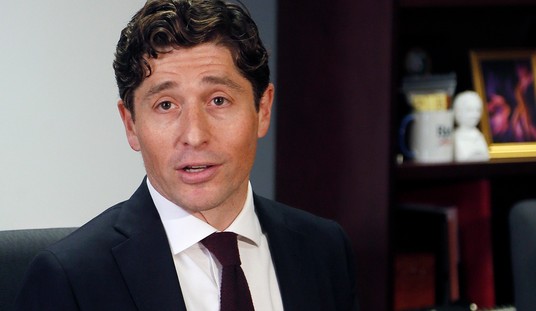Do pharmacists who oppose abortion have to provide morning-after pills? A federal judge invalidated a Washington state law requiring pharmacists to violate their religious principles in Stormans v Wiesman, but the Ninth Circuit overturned the district court. Alliance Defending Freedom represented Kevin Stormans and his family in this case, and produced this video explaining that the family had respectfully referred patients seeking morning-after pills to numerous other pharmacies that routinely stock it:
https://www.youtube.com/watch?v=gSpH6EU1YM0
This case points to a much larger issue: the future of freedom for all Americans to live according to their faith and conscience at the workplace. Facilitated referrals are an existing, recognized, workable, and already implemented alternative that the state regularly permits for a host of non-religious reasons, and nationally respected pharmacy associations and the majority of states fully support the use of that alternative for religious reasons. The state has agreed that the Stormans’ referrals cause no harm. The 9th Circuit decision against the Stormans and the two pharmacists upsets decades of settled pharmacy practice. If that decision stands, it will be the first time that health care professionals have been forced to participate in what they consider to be an abortion. Thus, the U.S. Supreme Court has a strong foundation upon which to stop the state from forcing the Stormans and the pharmacists to choose between their livelihood and their faith and ensure that all Americans retain the freedom to peacefully live consistent with their religious beliefs and conscience.
This common-sense solution won’t even get a hearing at the Supreme Court despite its implications for religious liberty. The pharmacists appealed to the Supreme Court, but could not get four justices to agree to hear the case — although three passionately wanted to take it up:
Just one day after issuing a major ruling striking down a portion of a pro-life law in Texas saving thousands of babies from abortion and closing unscrupulous abortion clinics, the Supreme Court has made a second ant-life decision.
Today, the nation’s highest court refused to hear an appeal from pro-life pharmacists in Washington state who are challenging a state law forcing them to sell the morning after pull and abortion-causing drugs that violate their conscience as Christians instead of allowing them to refer customers to nearby pharmacies.
Justice Samuel Alito, writing on behalf of Clarence Thomas and Chief Justice John Roberts, issued a dissent calling the case “an ominous sign”:
As I discuss below, Ralph’s has made a strong case that the District Court got it right, and that the regulations here are improperly designed to stamp out religious objectors. The importance of this issue is underscored by the 38 national and state pharmacist associations that urge us to hear the case. The decision below, they tell us, “upheld a radical departure from past regulation of the pharmacy industry” that “threatens to reduce patient access to medication by forcing some pharmacies—particularly small, independent ones that often survive by providing specialty services not provided elsewhere—to close.” Brief for National and State Pharmacists’ Associations as Amici Curiae 4, 5. Given the important First Amendment interests at stake and the potentially sweeping ramifications of the decision below, I would grant certiorari. …
At issue are Washington State regulations that are likely to make a pharmacist unemployable if he or she objects on religious grounds to dispensing certain prescription medications. There are strong reasons to doubt whether the regulations were adopted for—or that they actually serve—any legitimate purpose. And there is much evidence that the impetus for the adoption of the regulations was hostility to pharmacists whose religious beliefs regarding abortion and contraception are out of step with prevailing opinion in the State. Yet the Ninth Circuit held that the regulations do not violate the First Amendment, and this Court does not deem the case worthy of our time. If this is a sign of how religious liberty claims will be treated in the years ahead, those who value religious freedom have cause for great concern.
It’s curious indeed that the three couldn’t convince Anthony Kennedy to take up the case … and telling. Unlike yesterday’s decision on Texas’ HB2, the absence of Antonin Scalia is keenly felt. And as Alito writes, the denial of cert in this case is an ominous sign for the future of the court on religious liberty.
ADF issued a statement of disgust after the denial:
“All Americans should be free to peacefully live and work consistent with their faith without fear of unjust punishment, and no one should be forced to participate in the taking of human life. We had hoped that the U.S. Supreme Court would take this opportunity to reaffirm these long-held principles. The state of Washington allows pharmacists to refer customers for just about any reason—except reasons of conscience. Singling out people of faith and denying them the same freedom to refer is a violation of federal law. All 49 other states allow conscience-based referrals, which are fully supported by the American Pharmacists Association, the Washington Pharmacy Association, and 36 other pharmacy associations. Not one customer in Washington has been denied timely access to any drug due to a religious objection. As the trial court found, the government designed its law for the ‘primary—if not sole—purpose’ of targeting religious health care providers. We are disappointed that the high court didn’t take this case and uphold the trial court’s finding.”
Now that the Supreme Court has taken a powder on religious liberty, how many of the other 49 states will start passing similar laws to drive faithful Christians out of the pharmacy business?








Join the conversation as a VIP Member